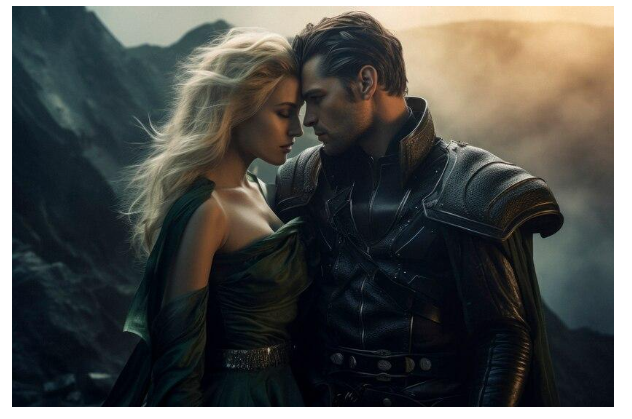How literature inspires our way of life: from enemies to lovers
From Childhood epiphanies to our afternoon me-time, literature sneaks into our lives, subtly bending our perspectives and revamping our bonds with others. Generation after generation, literature seeps into our collective consciousness, gently swaying our choices, firing up our imagination, and recasting the way we engage with our surroundings. Relationship dynamics are forever changed when we absorb the lessons found within the pages of a well-crafted story, taking our comprehension to new heights. In literature, whether classic or contemporary, a striking metamorphosis often occurs, as bitter foes surprisingly transform into ardent admirers. In Literature 101, we studied the storyline; now, it’s writ large in our personal lives, urging us to rethink connections, quarrels, and those hard-to-pinpoint emotions. But how exactly does this journey from animosity to affection manifest in both the pages of fiction and the hearts of reality?

The Enemies-to-Lovers Trope
At first glance, the notion of enemies becoming lovers seems paradoxical. How can two people who begin in conflict, misunderstanding, or even hatred grow to share mutual affection and love? Yet this trope has been one of the most popular and timeless themes in literature. Take, for example, Shakespeare’s Much Ado About Nothing. The sharp-witted banter between Beatrice and Benedick hides their growing affection, even as they claim to despise each other. Literature is filled with countless other examples, from Elizabeth Bennet and Mr. Darcy in Pride and Prejudice to more modern iterations like Katniss Everdeen and Peeta Mellark in The Hunger Games. These stories, and many others, depict relationships that evolve from antagonism to romance.
There’s a reason this theme has stuck with readers long after the final page is turned – what’s driving that connection? What if online relationships simply reflect the imperfect, often contradictory nature of our offline ones? In the safety of fiction, we see people overcome misunderstandings, pride, or past grievances to reach emotional intimacy. Real-world relationships, marked by their own fair share of disagreements, can draw hope from these narratives, finding strength to persevere through tough times. In the enemies-to-lovers narrative, we see that people and relationships can overhaul themselves – a transformation that’s just as believable as it is beautiful.
Literary Inspiration for Real-Life Relationships
Literature does more than entertain. It educates and shapes our emotional lives. According to a survey by the National Endowment for the Arts, 53% of adults in the U.S. engage with literature, be it through reading novels, plays, or poetry. This engagement goes beyond leisure; it has psychological and social implications. When readers immerse themselves in narratives where characters navigate difficult relationships, they often reflect on their interpersonal experiences, drawing inspiration from fictional resolutions.
Emotions and relationships between people can change in just a second. Have you noticed this? If you want to ride an emotional roller coaster, then best enemies-to-lovers books are your best chance. FictionMe even has a separate rating in this direction. This is a story reading app in which you can reveal and improve yourself. Whatever your goal: to relax, to get to know yourself better, to have fun or to be in suspense, the novel app is a necessary tool in achieving these desires.
A study by Dr. John Gottman, a leading expert on relationships, suggests that how couples argue can predict the longevity of their relationship. He found that 69% of conflicts in relationships are perpetual, meaning they stem from fundamental personality differences. Yet successful couples learn to navigate these differences, much like characters in an enemies-to-lovers arc. Fiction offers a blueprint for real life, showing that conflicts can be reconciled and that love can grow out of discord.
Literature and the Psychology of Transformation
When we read about characters going from enemies to lovers, we witness a psychological transformation—both for the characters and, in turn, for ourselves. Psychologically, these narratives speak to the concept of cognitive dissonance, the mental discomfort experienced when holding two contradictory beliefs. At first, the protagonists may dislike each other based on preconceived notions or superficial judgments. However, as the narrative progresses, these judgments are challenged, and characters are forced to reassess their feelings. The result is personal growth and an evolution in how they view each other.
This psychological journey, reflected in literature, can inspire readers to reconsider their own biases. In life, just as in fiction, we often hold onto grudges or snap judgments, allowing them to color our relationships. But literature teaches that people are multi-faceted and that those we initially clash with may possess qualities we admire or even come to love. The enemies-to-lovers arc encourages empathy, urging us to look beyond surface-level conflicts and to give people a chance to surprise us.

Why Conflict Can Be Beneficial?
What’s particularly compelling about the enemies-to-lovers trope is the tension it creates. Conflict, when handled well, can be the lifeblood of a relationship. In fact, a 2017 study by the University of California found that couples who avoid conflict altogether are 35% more likely to break up compared to those who confront their issues. The tension in literary narratives—when two characters who seem utterly opposed to one another finally come together—mirrors the tension in real relationships that, when navigated successfully, leads to deeper intimacy.
How Literature Encourages Self-Reflection and Personal Growth
The influence of literature on life isn’t limited to romantic relationships. The themes, conflicts, and resolutions in literary works often inspire readers to reflect on their own lives. Take the enemies-to-lovers arc, for example. On the surface, it is a narrative about romantic development, but on a deeper level, it is about personal growth.
In real life, literature encourages similar self-reflection. Just as characters in a novel go on a journey from conflict to love, readers, too, are invited to embark on their own journeys of emotional and relational development.
Conclusion
Within the pages of a good book, you’ll find more than just a story – you’ll discover a profound truth about the tangled web of human connections, all thanks to the narrative’s sharps from worn enemies to cherished partners. Fictional and real-life conflicts boil down to a question: can we rise above the ashes and emerge stronger? Reading the right story can alter the way we view our relationships, helping us grasp that what initially feels broken can eventually become our greatest source of strength. In the grip of these ageless stories, we’re jolted back to our own humanity, struck by the same yearnings and capacity for transformation that drive our beloved characters.

